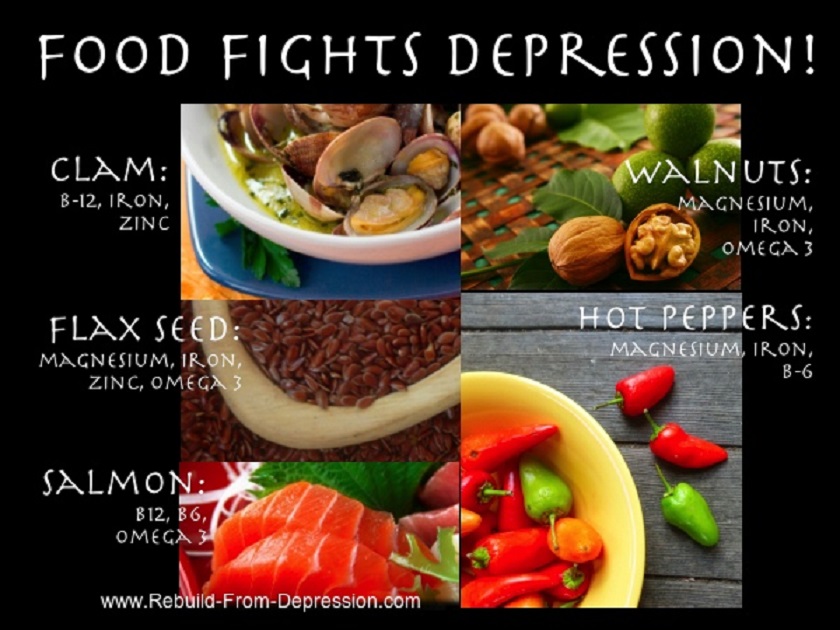[Author]by Aurora Geib[/Author]
Depression is a cruel disease. It starts out as an unobtrusive emotion and, when left unattended, eventually becomes a life altering and sometimes even a life threatening condition. Judging from the many stories shared on the internet describing actual cases of depression, one thing seems to stand out – a certain lack of hope. This hopelessness is further compounded by the fact that it is accompanied by a helpless feeling and manifested through antisocial behavior that characterizes depressed people.
Aside form omega 3 fatty acid rich foods, below are some more examples of foods that can also have a beneficial effect on mood:
Turkey – This food contains tryptophan, an amino acid needed to produce serotonin, a brain chemical. It is a deficiency in serotonin production that is thought to cause depression, so increasing its production could possibly address symptoms. A study published in the online journal Pharmacology, Biochemistry and Behavior shared that tryptophan can be used as an anti-depressant in mild to moderate cases of depression and there is evidence to support its ability to decrease aggression. Tryptophan is also found in meat, beans and eggs.
Vegetables, nuts and whole grains – This food group contains B vitamins: folic acid, B2, B6 and B12. In a study published in the Journal of Psychopharmacology, it was suggested that low levels of the B vitamin, folic acid and high levels of homocysteine, a high level protein, can likely produce depression. It was further suggested that increased doses of folic and vitamin B12 could potentially improve treatment outcome in depression.
Organic Potatoes, corn and rice grain – This food group is an example of complex carbohydrates which, when broken down, become glucose. Glucose fuels the brain, boosting cognitive performance and improving adeptness at tasks involving memory and attention. Avoid eating too much sugar, however, as it causes spikes in the blood sugar and aggravates symptoms of depression.
St. John’s Wort – Although there is evidence to the effect that the effectiveness of St. John’s Wort in treating serious cases of depression is more akin to placebo, there is also scientific evidence suggesting the herb’s efficacy in dealing with milder forms of depression. This herb is widely prescribed in Europe for depression.
Despite the evidence suggesting that depression may be treated by diet, it is still not enough to build a tight case. For now, most doctors agree that proper medical care cannot be substituted by a depression diet or from food or dietary supplements. From the current medical viewpoint, psychotherapy and medication is still the most effective means of dealing with depression.
Sources of the article:
Treatment of depression: time to consider folic acid and vitamin B12
Coppen A. and Bolander-Gouaille, C.
We review the findings in major depression of a low plasma and particularly red cell folate, but also of low vitamin B12 status. Both low folate and low vitamin B12 status have been found in studies of depressive patients, and an association between depression and low levels of the two vitamins is found in studies of the general population. Low plasma or serum folate has also been found in patients with recurrent mood disorders treated by lithium. A link between depression and low folate has similarly been found in patients with alcoholism. It is interesting to note that Hong Kong and Taiwan populations with traditional Chinese diets (rich in folate), including patients with major depression, have high serum folate concentrations.
However, these countries have very low life time rates of major depression. Low folate levels are furthermore linked to a poor response to antidepressants, and treatment with folic acid is shown to improve response to antidepressants. A recent study also suggests that high vitamin B12 status may be associated with better treatment outcome.
(NaturalNews)



